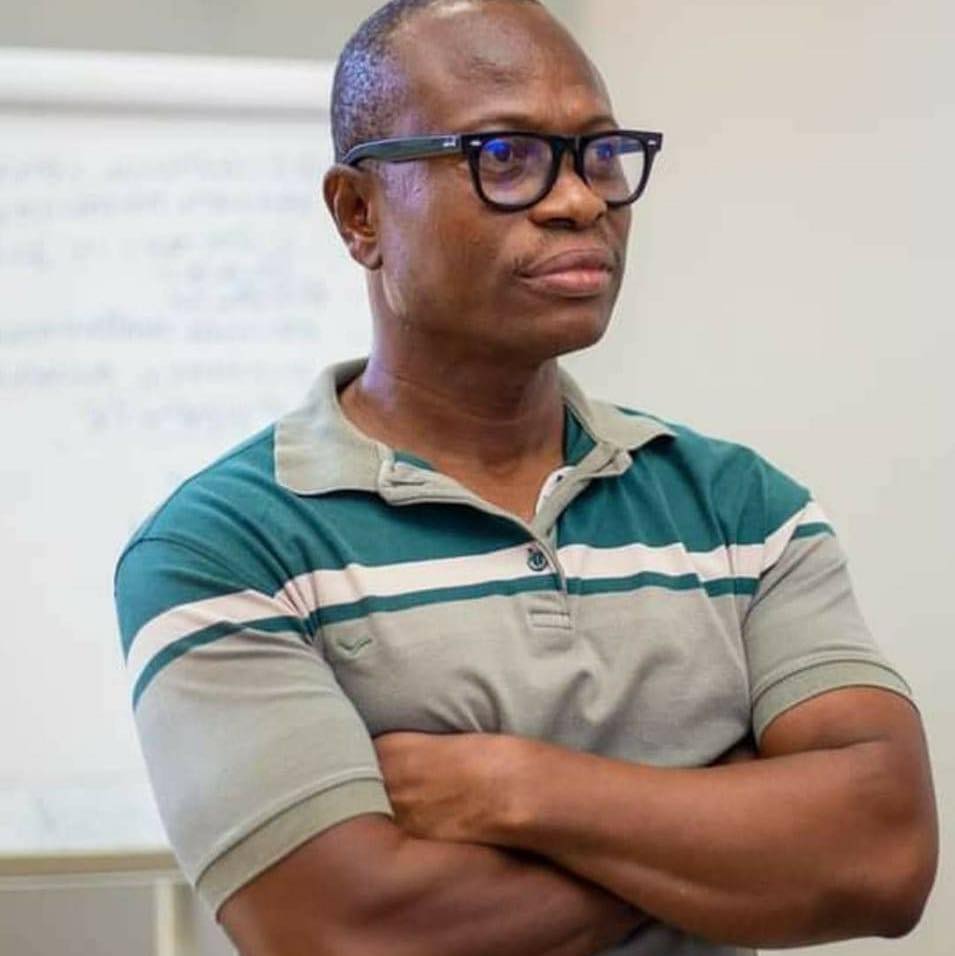
Step into the multifaceted world of Yellowwoods, the private investment group which owns the Hollard Group and more globally, where vision meets action in a quest for sustainable growth, unwavering values, and continuous innovation.
In this immersive interview, the B&FT’s Bernard Yaw Ashiadey and Ebenezer Chike Adjei Njoku take a deep dive into the strategies and philosophies that propel Yellowwoods forward, guided by its esteemed Chairman, Dr. Adrian Enthoven and Nicola Galombik, an Executive Director at Yellowwoods, responsible for social dividends and for promoting sustainable and inclusive growth strategies.
A compelling narrative unfolds as we unravel the intricacies of investment strategies, compliance frameworks, impact assessment methodologies, and the vibrant culture of innovation within this globally diverse organisation. Join us on this enlightening journey as we explore Yellowwoods’ long-term vision and the legacy it aspires to create for future generations.
B&FT: To the uninitiated, what is Yellowwoods?
YW: Yellowwoods is a family business, now in its third generation. As a family business, we have a very long-term perspective. We love to build businesses, unlike many family businesses that invest passively. We actively involve ourselves in our investments, working to grow these businesses and aiming to impact the markets we operate in significantly.
We don’t think in three-year or five-year cycles or plan to sell our businesses quickly. Our focus is on building businesses for the next 20 to 30 years. This long-term approach is evident in our investments in Africa, particularly in Ghana, and our plans for expansion across West Africa.
We are committed to building something for the future, often remaining in business for 20, 30, or even 40 years. It’s important to note that we have a narrow focus with a small number of key and strategic investments. We concentrate all our energy on these core investments, with Hollard in Africa being one of them.
Another critical aspect of Yellowwoods is that values and purpose are at the heart of everything we do. Our purpose is to grow people and businesses in ways that make us proud and act as catalysts for significant and enduring positive change. We are passionate about the people who work in our businesses, those who buy our products, and the communities and societies we operate in. Helping to grow people is fundamental to who we are and what excites us.
Acting in ways that make us proud is essential. In everything we do—business operations, product sales, and interactions with partners and communities—we strive to be proud of our actions. We continually ask ourselves how to do things differently to maintain this pride.
Lastly, as a family business, we consider what we want to pass on to the next generation. It’s not just about handing over successful businesses; it’s also about creating a better world for them. We aim to make a significant impact on society and the environment and address key global challenges. In 20 or 30 years, when we pass the baton to the next generation, we want to be confident that we have made a positive difference in the world.
B&FT: What are some core values that guide Yellowwoods?
YW: Values and purpose are at the heart of everything we do at Yellowwoods. Our purpose is to grow people and businesses by acting in ways that make us proud, thereby being a catalyst for significant and enduring positive change.
We are passionate about the people involved in our businesses, whether they are employees, customers, or members of our communities. We need to be proud of our actions and decisions and continually ask ourselves how to improve and uphold our values.
When we think about the future, it’s not just about building successful businesses for the next generation. It’s about creating a better world for them by significantly contributing to society and the environment and addressing critical global challenges. Building businesses and impacting the world are not separate goals; they are integrated goals, forming the basis of our shared value framework.
B&FT: Can you elaborate on the core businesses under Yellowwoods?
YW: Certainly. Our group focuses on a few core pillars, with restaurants being primary. The main restaurant business is Nando’s, which operates in 20 countries with over 1,200 restaurants, most of which are company-owned. We employ around 30,000 people globally.
Our primary growth focus for Nando’s is currently on the US market, with about 60 restaurants in three states. Although we haven’t reached profitability in the US yet, we have a long-term view and are committed to making it successful, just as in other markets like the UK, South Africa, and Australia.
In addition to restaurants, we have significant investments in the insurance sector. Our flagship insurance business is Hollard, which started in Africa 40 years ago and has expanded to Australia. In Australia, we’ve built a significant presence, including acquiring the insurance business of Commonwealth Bank and partnering with Woolworths. We aim to develop Africa’s most vital, most loved, and most profitable insurance business, with a long-term vision guiding our efforts.
Another major area is pet insurance. We have the largest pet insurance business in Australia and have invested in the largest pet insurance business in the US. As pets become more humanised, the demand for comprehensive pet care, including specialised medical treatments, is increasing. We see a global potential for growth in this sector.
B&FT: What about your other investments outside of restaurants and insurance?
YW: Beyond restaurants and insurance, we have a hospitality business called ‘andBeyond,’ which operates high-end luxury lodges in Africa, Asia, and Latin America. This business is more about driving conservation initiatives than generating profits.
We’re partnering with organisations like African Parks to expand conservation efforts across Africa, preserving pristine wilderness areas. We also own one of the largest wine businesses in South Africa, Spier Wine.
Spier embodies our values, focusing on fair trade, zero waste, renewable energy, and paying a living wage to our staff. It’s not just a financial asset but a demonstration of who we are and what we stand for.
B&FT: How do you ensure your business operations reflect your values?
YW: Impact and values are central to everything we do, even in our financial-first businesses like insurance. We design products and operate in ways that contribute positively to the communities and countries we are in.
For example, with Hollard in Africa, we don’t just sell insurance products to make money; we aim to make a tangible difference in the lives of the people and communities we serve.
Our long-term view ensures that we continuously strive to improve and make a positive impact, distinguishing us from many competitors. Our long-term approach is core to who we are and what we’re trying to achieve as a family and values-driven business.
B&FT: How do you balance your global investment portfolio across different markets? More importantly, what criteria do you use in selecting new investment opportunities?
YW: Balancing our global investment portfolio is thoughtful, especially given our long-term view. We maintain a focused approach with a relatively small core team managing our investments, consisting of about 10 to 12 people. We don’t frequently venture into new areas outside our established interests.
Our key investment philosophy centres on selecting core businesses or focus areas and backing dedicated teams to build and expand those businesses. Take Hollard, for example. Our strategy for insurance in Africa revolves around Hollard.
Rather than acquiring new insurance businesses across Africa, we empower the Hollard team to find opportunities, make acquisitions, and expand. They have the local knowledge, relationships, and expertise to drive success in these markets.
When evaluating new investment opportunities, the first crucial question we ask is whether the opportunity aligns with our 20- —to 30-year strategy. It must fit within our core business areas, where we already have the teams, capabilities, and resources to support growth and success.
For us, it’s not about making random acquisitions or diversifying for the sake of it. We focus on expanding within our existing core investments. For instance, we don’t aim to directly buy numerous new businesses across Africa. Instead, we leverage the substantial infrastructure and expertise of our core businesses, like Hollard. This approach ensures we have a competitive advantage and the ability to manage and grow these investments effectively.
Concentrating on a few strategic areas and empowering our established teams allows us to sustain a balanced and successful global investment portfolio. This method allows us to maintain our long-term vision while ensuring each investment is adequately supported and positioned for growth.
B&FT: What lessons have you learned from these diverse markets?
YW: We’ve learned several key lessons from operating in diverse markets. Here are a few important ones:
- Proximity and local presence
Many companies struggle with internationalisation, and it’s not an easy feat. Our success in building international operations, starting from South Africa, is partly due to having family members living in key markets. For instance, my brother was in the UK, my father split his time between the UK, South Africa, and Europe, my cousin was in Australia, and my uncle was in the US. This local presence allows us to set up correctly, better understand the markets, and foster essential relationships. Managing international operations solely from South Africa would have been much more challenging.
- Long-term mindset
Entering international markets requires a long-term perspective. Often, businesses enter these markets with excitement, but the reality is usually more challenging, leading to early losses and potential withdrawal.
While it’s crucial to recognise when to cut losses, our success comes from maintaining conviction in our business and market potential and having the Patience to see it through. We’ve learned that the “hockey stick” growth curve often means deeper and longer initial losses than anticipated.
It may take 10 to 15 years, rather than the expected five, to start seeing profits. However, when you emerge on the other side, the rewards are often more significant than initially expected.
- People
Great people build great businesses. Even with a fantastic idea or concept, success is only possible with exemplary leadership and team. We’ve focused on hiring the best people to lead our businesses. For example, hiring someone like Patience Akyianu for Hollard was a significant decision.
Some might question the need for such a high-caliber leader, but her impact on the business has been tremendous. Great leaders like Patience attract other talented individuals, creating strong, capable teams. This emphasis on finding exceptional leaders and building strong teams has been a cornerstone of our success.
Our approach to international expansion involves the following:
- Ensuring a local presence to understand and integrate into the market.
- Maintaining a long-term commitment even when initial phases are challenging.
- Investing in top-tier leadership to drive our businesses forward.
These lessons have been fundamental to our ability to thrive in diverse markets.
B&FT: How do you assess the impact of your investments and other initiatives? Do you have any specific metrics?
YW: Businesses have the potential to be catalysts for significant and enduring positive change. It isn’t just about financial resources but also intellectual resources, capabilities, and platforms businesses can provide to drive change in markets and societies. Governments have their role, but their power is often limited in the market. Business, with its resources and reach, can make a significant difference.
We at Yellowwoods collectively set about answering the question you just posed. We start by looking at our businesses’ assets—value chains, people, or investment portfolios. For example, in Nando’s context, we focus on procurement and supply chain, while in a life insurance business, we deploy different assets.
We then think about the value we’re creating in financial terms and social and environmental terms. We’re very results-oriented and goal-driven. While we’re patient with the J-curve, we want to see results. But we also consider positive social and environmental outcomes as part of those results.
A significant impact metric for businesses like Hollard in Africa is the number of people we can bring into the insurance net. We understand it’s not just about growing market share but about transforming markets and making insurance accessible to more people.
With Africa’s growth and demographic changes, Africans must manage risk better. For micro-insurance, the impact is measured by the number of households able to manage their cash flows and risk, ensuring they can maintain stability in events like health issues or natural disasters.
We measure impact by the products we innovate to serve underserved markets. For instance, in South Africa, solutions for fire insurance in informal settlements have been developed. These solutions include technology for early warning systems, which addresses the communal risk of fires spreading in these areas. The impact here is not just financial but also about solving real problems and increasing the resilience of these communities.
Another focus area is SMEs, many of which are family-owned and critical to African economies. We’ve been innovating around providing insurance that unlocks credit for these businesses. Our inclusive insurance will include credit guarantee models, helping businesses grow by managing their downside risks and improving access to credit.
Climate issues are a major concern, especially for insurers. Our businesses, particularly in Africa and Australia, are on the front lines of climate impacts. We focus on two main aspects: ensuring our global operations are decarbonising, contributing to net zero targets and enhancing the resilience of our customers. For instance, we look at insurance for smallholder farmers in terms of current crop protection and in helping them transition to more resilient farming practices.
Ultimately, assessing the impact of our investments involves a combination of financial results and broader social and environmental outcomes. Our metrics vary depending on the business and market but always align with our long-term vision. We’re committed to driving positive change, understanding that significant problems require a long-term perspective and a willingness to invest in innovative solutions. This holistic approach ensures that our businesses contribute meaningfully to our markets and societies.
B&FT: How do you ensure compliance across your businesses?
YW: Ensuring compliance across a diverse portfolio of businesses like ours is a multifaceted endeavour rooted in strong leadership and clear values. We prioritise empowering our executives, emphasising trust in their ability to uphold our core principles. Rather than micromanaging compliance, we focus on backing individuals who naturally embody our values, making critical underwriting and service delivery decisions with a keen sense of ethical responsibility.
Our approach extends to shareholder engagement, where we consistently signal the importance of financial, social, and environmental performance. Incentives are aligned with these values, ensuring that executives and leaders are rewarded based on their contributions across all three areas. Additionally, our PRIDE framework articulates what makes us proud in business conduct, from fair wages to ethical product sourcing, reinforcing a culture of integrity and responsibility.
Cultivating innovation and continuous improvement is another cornerstone of our strategy. We foster an open-idea culture where creativity is encouraged at all levels. By decentralising decision-making and empowering teams, we harness diverse perspectives and the entrepreneurial spirit, leading to transformative ideas and initiatives. Our long-term vision for Yellowwoods encompasses sustainable growth, technological change adaptability, and shared value creation, ensuring that we remain resilient and purpose-driven in an ever-evolving business landscape.
Regarding innovation, we encourage a culture where the best ideas can surface regardless of hierarchy. We have seen firsthand how transformative ideas can come from unexpected places within our organisation, from junior marketing personnel proposing groundbreaking strategies that have reshaped our businesses. This inclusivity and idea of meritocracy culture fuels our continuous improvement and adaptation in an increasingly complex and dynamic global environment.
In managing a geographically diverse organisation like Yellowwoods, we emphasise the importance of devolving power and decision-making authority. Centralised control is not conducive to managing a complex global network effectively. Instead, we entrust strong teams within each business unit with responsibility and authority, allowing them to make local decisions that drive growth and innovation. Our decentralised yet aligned approach ensures agility, adaptability, and a deep understanding of local market dynamics, enabling us to navigate diverse challenges and opportunities with resilience and purpose.
B&FT: How do you envision Yellowwoods’ direction for the next generation, particularly regarding new initiatives and strategic focus?
YW: As we look towards the next generation, our direction remains firmly rooted in our plans and strategies. We have a clear vision for the next 20 years, focusing on building and expanding our businesses in Africa, particularly in areas like pet insurance with Hollard and the growth of Nando’s in Australia and the US. These initiatives align with our long-term goals and the contributions we aim to make in these regions.
Our approach emphasises the importance of staying focused on our core objectives. We’ve learned that taking on too many new ventures can dilute our efforts and distract us from executing excellently on our existing plans.
Therefore, our priority is to continue executing effectively on the initiatives we have in front of us, ensuring that we achieve our strategic objectives and make a meaningful impact in the markets we operate in.
The post Beyond profit – How Yellowwoods is building businesses and transforming communities appeared first on The Business & Financial Times.
Read Full Story











Facebook
Twitter
Pinterest
Instagram
Google+
YouTube
LinkedIn
RSS